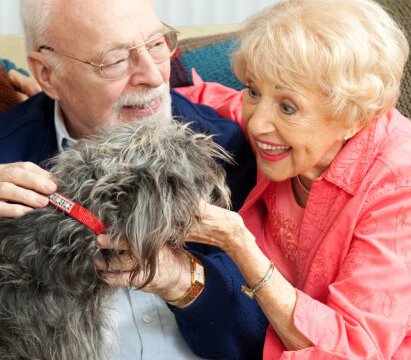The classic image of a happy dog with their head hanging out of an open car window may seem like an ideal outing, but the reality for many dog owners is much different. (Plus... that's not very safe. Please get your dog a crate or other reliable restraint for car travel.) The good news is: your dog's car sickness isn't forever. Every dog is different, so try different options to see what works best for your pup.
What causes motion sickness in dogs?
Surprisingly, it’s not always motion that causes car sickness.
There are two main culprits:
1. For young pups, ear structures used for balance aren’t fully developed yet. This isn’t to say that all dogs will outgrow travel sickness, though many will.
2. They have been conditioned to associate car travel with something negative, such as: trips to the vet, being abandoned or dropped at a shelter, or a remembered trauma from sickness as a young pup while their ears were still developing.
Learn to recognize the signs
Vomiting isn’t the only sign of car sickness. Shaking, excessive drooling, nervous whining, excessive panting, constant lip-licking, and complete inactivity are all signs that your dog is feeling sick.
Most of the time, it’s anxiety over being in the moving car that triggers the icky feelings. For puppies whose immature ear structures are responsible for balance, a moving car does actually make them feel sick. Older dogs, however, may have some of those negative associations, or they may simply feel afraid because they haven’t been in a car before. Be patient with them—they’ll get better over time.
What can you do to help them out?
Practice car comfort
Start by getting your dog used to approaching the car, then spend some time in the car with the engine off, then spend time in the car building a positive association there. Try feeding them their meals inside the car, giving them their favorite bone in the car, (you can sit and pet them or just hang out and read a book,) offering their favourite treat, and brushing them if they find that enjoyable. Do not attempt to start the car until they are calm and relaxed during these visits. Then progress slowly from simply sitting in the car, to sitting in the car with the engine running, then to short 3-5 minute trips down the street and back. (Be sure to correct any stress—ask your Bark Busters trainer for advice.) Eventually you’ll build your pet’s confidence enough to be able to take longer trips.
Lower in the car can be better
Some dogs do better on the floor as it is a bit more stable. Lowering their height can also help in cases where motion sickness is triggered by looking out the window.
Roll those windows down
Lower your car windows a couple of inches while the car is moving. This helps balance the air pressure inside the car with the air pressure outside, which may help reduce your dog’s nausea. Also, be sure to keep the car cool and well ventilated, as a hot or stuffy vehicle can contribute to unpleasant sensations for your dog.
Reduce the static
Buy a static electricity reduction strip from a car accessory provider, like Canadian Tire. The strip is rubber and usually copper. One end attaches to the undercarriage of your car while the other end drags periodically on the ground, instantly reducing any static buildup in your car—this static buildup has also been known to cause nausea in some dogs.
Yes, there are some natural remedies
Some dogs are also helped by homeopathic remedies (like Homeopet Travel rememdy) 20 minutes before a trip.
Also, limit feeding before a car trip, and provide plenty of water and food when you arrive.
Get further advice from your veterinarian
If problems persist, ask your vet. They will be able to suggest medications that could help and that are appropriate for your dog.





